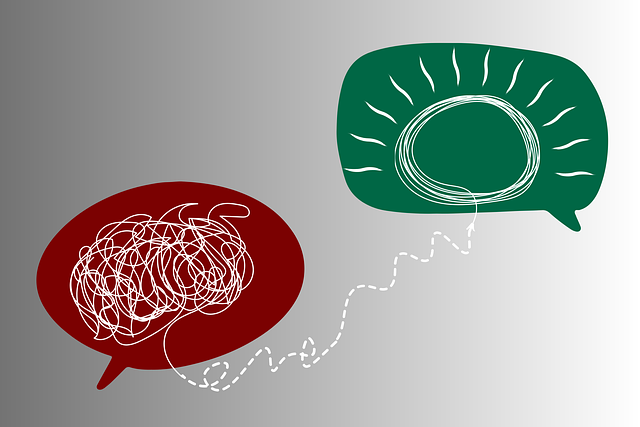Mental health is a vital aspect of overall well-being, impacting daily life and relationships. Lakewood Anger Management Therapy emphasizes that mental illness affects not just individuals but their families and communities. Effective mental health education, focusing on techniques like stress management, mindfulness, and emotional regulation, is key to reducing stigma and promoting well-being. Comprehensive programs teach individuals healthy coping mechanisms, including mood management, physical activity, sleep hygiene, and communication skills, leading to better conflict resolution and goal setting. Evaluating these programs through progress assessments and participant feedback ensures tailored adjustments, fostering personal growth and a more resilient community, as seen in successful Lakewood Anger Management Therapy models.
Mental health is a cornerstone of overall well-being, impacting individuals and communities alike. This article explores the design of effective mental health education programs, with a specific focus on Lakewood Anger Management Therapy as a proven approach. We’ll delve into understanding mental health’s far-reaching effects and uncover key components that make these programs successful. Furthermore, we’ll examine implementation strategies and evaluation methods, providing insights into how Lakewood Anger Management Therapy can be effectively rolled out and measured for maximum impact.
- Understanding Mental Health and Its Impact on Individuals and Communities
- Key Components of Effective Mental Health Education Programs
- Implementing and Evaluating Lakewood Anger Management Therapy Programs
Understanding Mental Health and Its Impact on Individuals and Communities

Mental health is a fundamental aspect of overall well-being, encompassing emotional, psychological, and social stability. Understanding mental health involves recognizing that it affects individuals’ daily functioning, relationships, and ability to cope with life’s challenges. According to Lakewood Anger Management Therapy, mental illness can manifest in various forms, from anxiety and depression to more severe conditions like bipolar disorder or schizophrenia. These disorders not only impact the affected person but also have profound effects on their families and communities.
The significance of mental health education lies in its potential to foster mental health awareness and empower individuals to recognize and support themselves and others. By promoting emotional well-being promotion techniques, such as stress management, mindfulness, and social connectivity, communities can build resilience and reduce the stigma surrounding mental illness. This is crucial because mental illness stigma reduction efforts often hinder people from seeking help, leading to prolonged suffering and potentially preventable outcomes. Through comprehensive education programs, individuals can gain insights into their emotional states, learn healthy coping mechanisms, and develop strategies to navigate life’s challenges more effectively.
Key Components of Effective Mental Health Education Programs

Effective mental health education programs are multifaceted, aiming to equip individuals with knowledge and skills for maintaining well-being. These initiatives should incorporate Mood Management techniques, teaching participants how to recognize and regulate their emotional states. Strategies such as mindfulness meditation, cognitive reframing, and relaxation exercises have proven beneficial in managing stress and enhancing resilience.
The design of Mental Health Education Programs should also focus on practical Stress Reduction Methods. This includes promoting healthy lifestyle habits like regular physical activity, adequate sleep hygiene, and balanced nutrition. Additionally, teaching effective communication skills, conflict resolution strategies, and setting realistic goals can empower individuals to navigate challenging situations and foster positive mental health. Integrating these components, tailored to the specific needs of communities, can significantly impact overall well-being, as demonstrated by successful Lakewood Anger Management Therapy models.
Implementing and Evaluating Lakewood Anger Management Therapy Programs

Implementing and evaluating Lakewood Anger Management Therapy programs is a comprehensive process aimed at fostering healthier environments and reducing instances of burnout. These therapeutic interventions are designed to equip individuals with effective Lakewood Anger Management Therapy strategies, enabling them to manage anger constructively. By integrating evidence-based techniques into the program structure, participants learn valuable Conflict Resolution Techniques that promote positive interactions and minimize potential harm caused by unmanaged anger.
Evaluation plays a pivotal role in ensuring the program’s effectiveness. Regular assessment of participant progress allows for adjustments to be made, incorporating feedback and tailoring the curriculum to meet diverse needs. Incorporating Self-Awareness Exercises within these evaluations facilitates personal growth, encouraging individuals to recognize triggers and develop healthier coping mechanisms. This multi-faceted approach not only enhances individual well-being but also contributes to a more harmonious and resilient community overall.
Mental health education programs, such as the successful Lakewood Anger Management Therapy initiatives, play a pivotal role in fostering well-being on both individual and community levels. By integrating key components like awareness, skill development, and inclusive practices, these programs can effectively address mental health challenges. Evaluating their impact is essential to refining and implementing evidence-based strategies that create positive change. This approach ensures that communities become more resilient and better equipped to support the mental health of all members.










